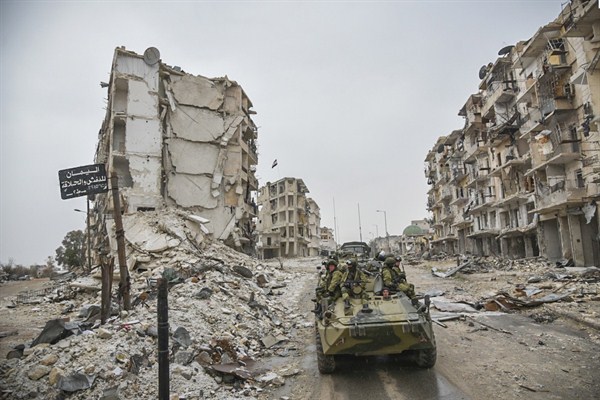If there is only one certainty about the Syrian civil war, it is that any ultimate resolution of the conflict at this point will be horribly unsatisfying, politically and morally. The current tenuous cease-fire and peace process negotiated and overseen by Russia, Turkey and Iran is just that on both counts. But despite all its many flaws, it—or any other arrangement that effectively silences the guns and opens at least the possibility of a lasting political accommodation—represents a lesser evil than continued fighting.
The deal’s flaws are immediately obvious. To begin with, it is the result of a military onslaught against rebel-held areas of Aleppo that has shocked the world’s conscience with its brutality. If the process results in a durable peace, it will indeed be the “peace of the dead,” with alarming implications for conflict-resolution norms that have evolved significantly in the past decade and a half, in part due to the counterinsurgency doctrine involving less lethal force that was implemented by the U.S. military in Iraq and Afghanistan.
Another flaw from the U.S. perspective is the exclusion of Washington from the initial phases of the process. A new round of talks is set to take place later this month in Kazakhstan’s capital, Astana, between the Assad regime and some part of the Syrian opposition, with other parties set to become involved only at a later unspecified time. Following years of futile U.S. diplomatic efforts to reach a similar accord with Russia, the snub further demonstrates the limits of American influence over the course and outcome of Syria’s war. This is mainly due to a conscious decision by the Obama administration to limit its involvement, exacerbated by its inability to rein in American partners, particularly Turkey and the Gulf states, from arming proxies to escalate the conflict. Russia’s decisive military intervention may now have convinced those U.S. partners what Washington could not: that continued fighting is futile.

